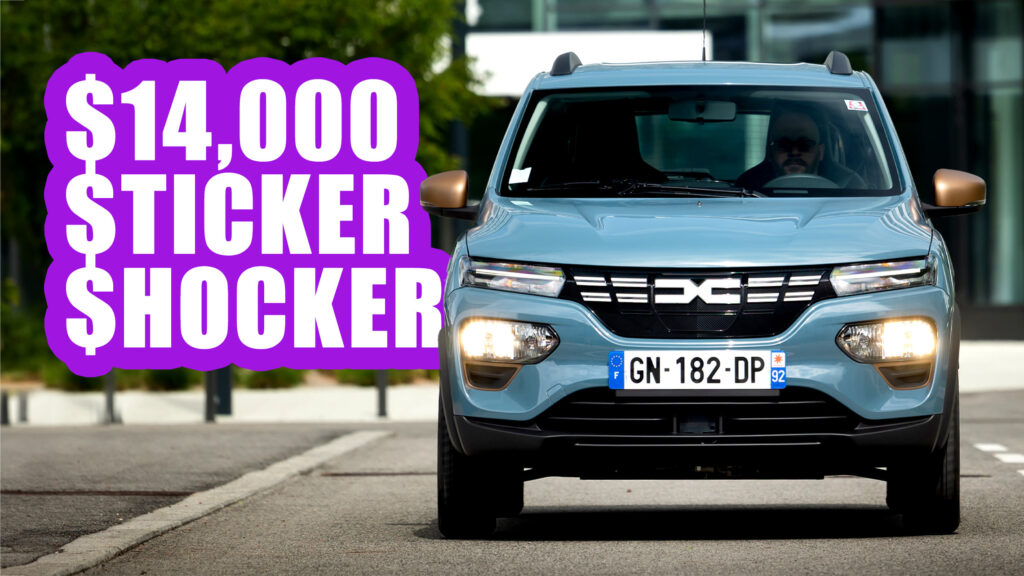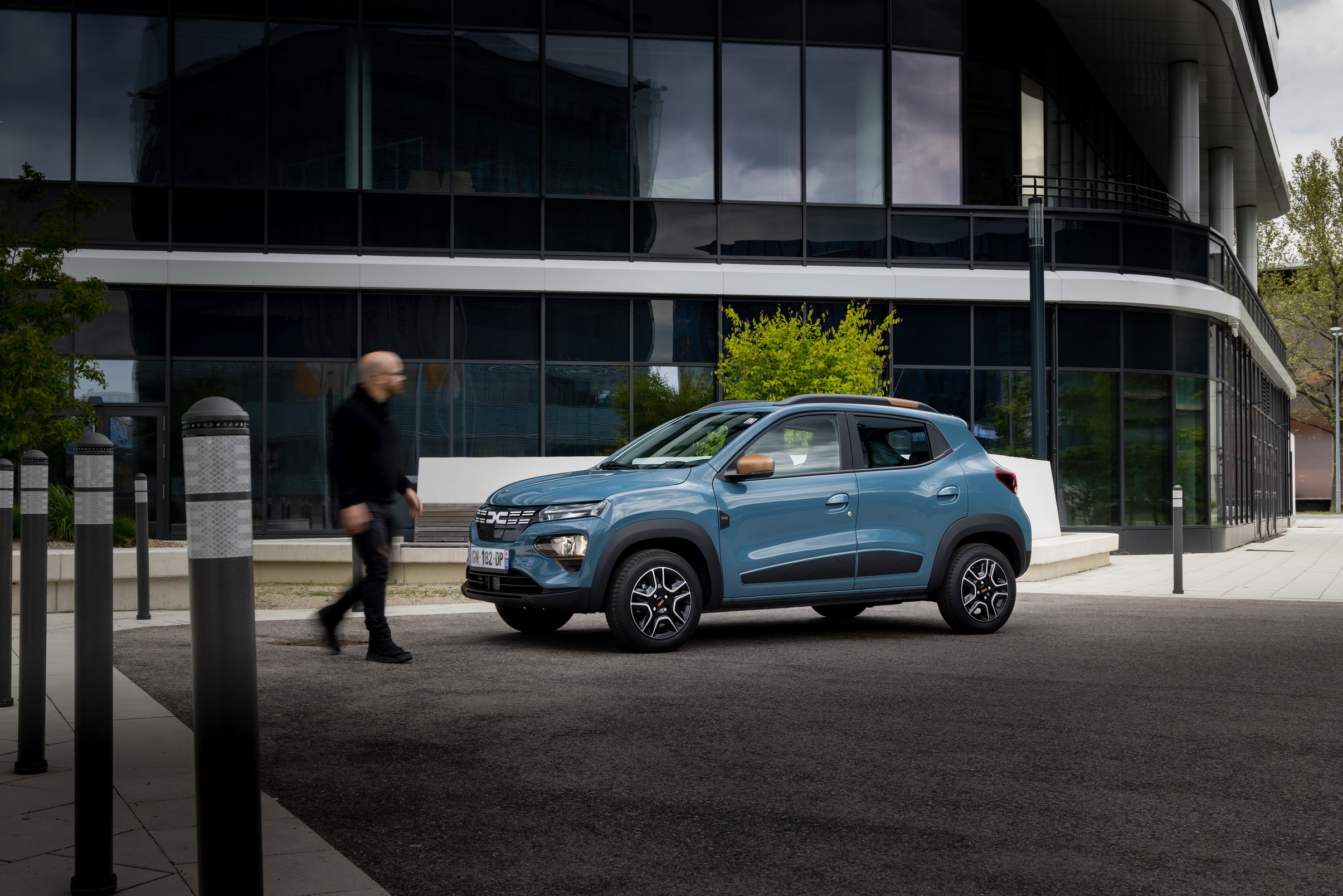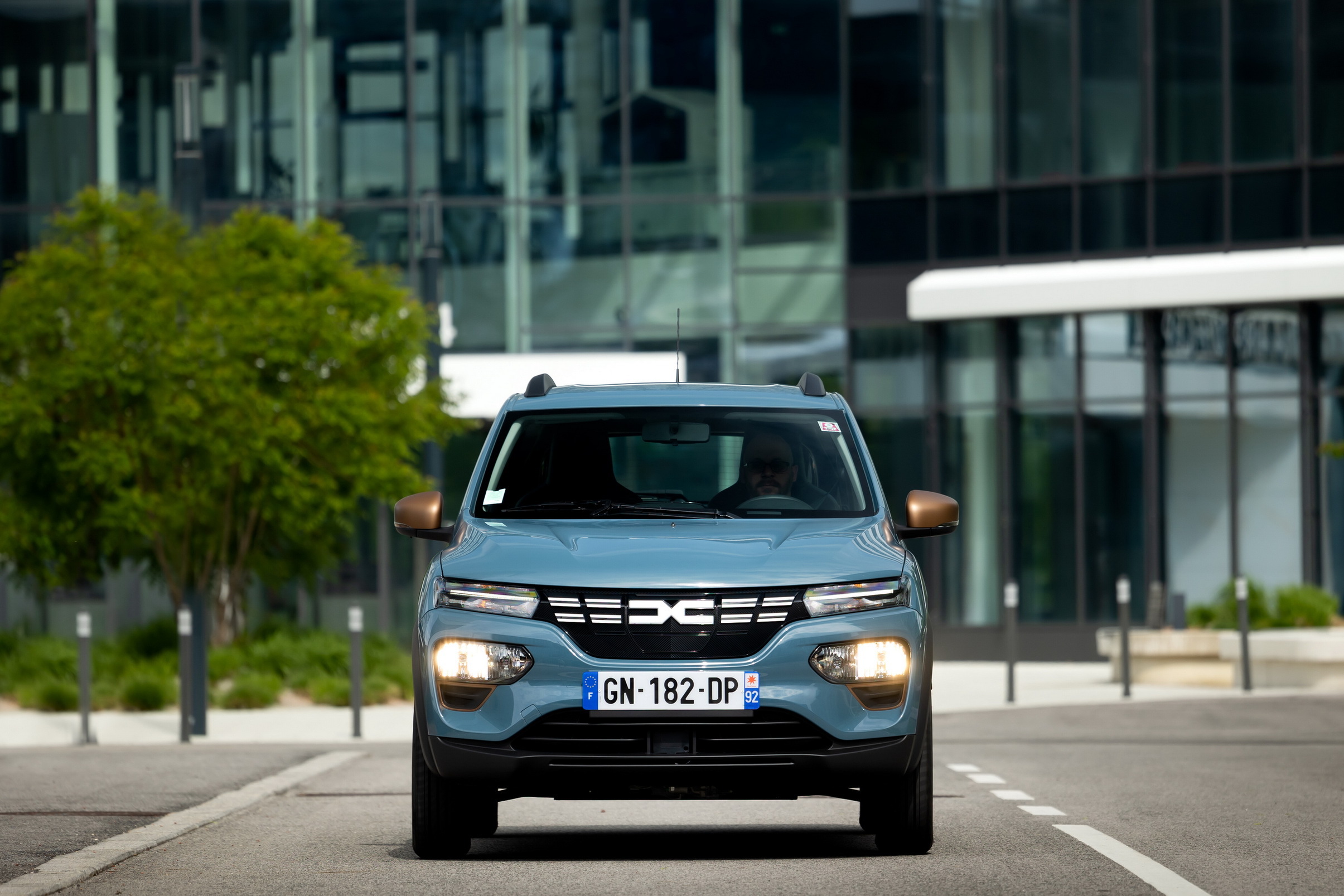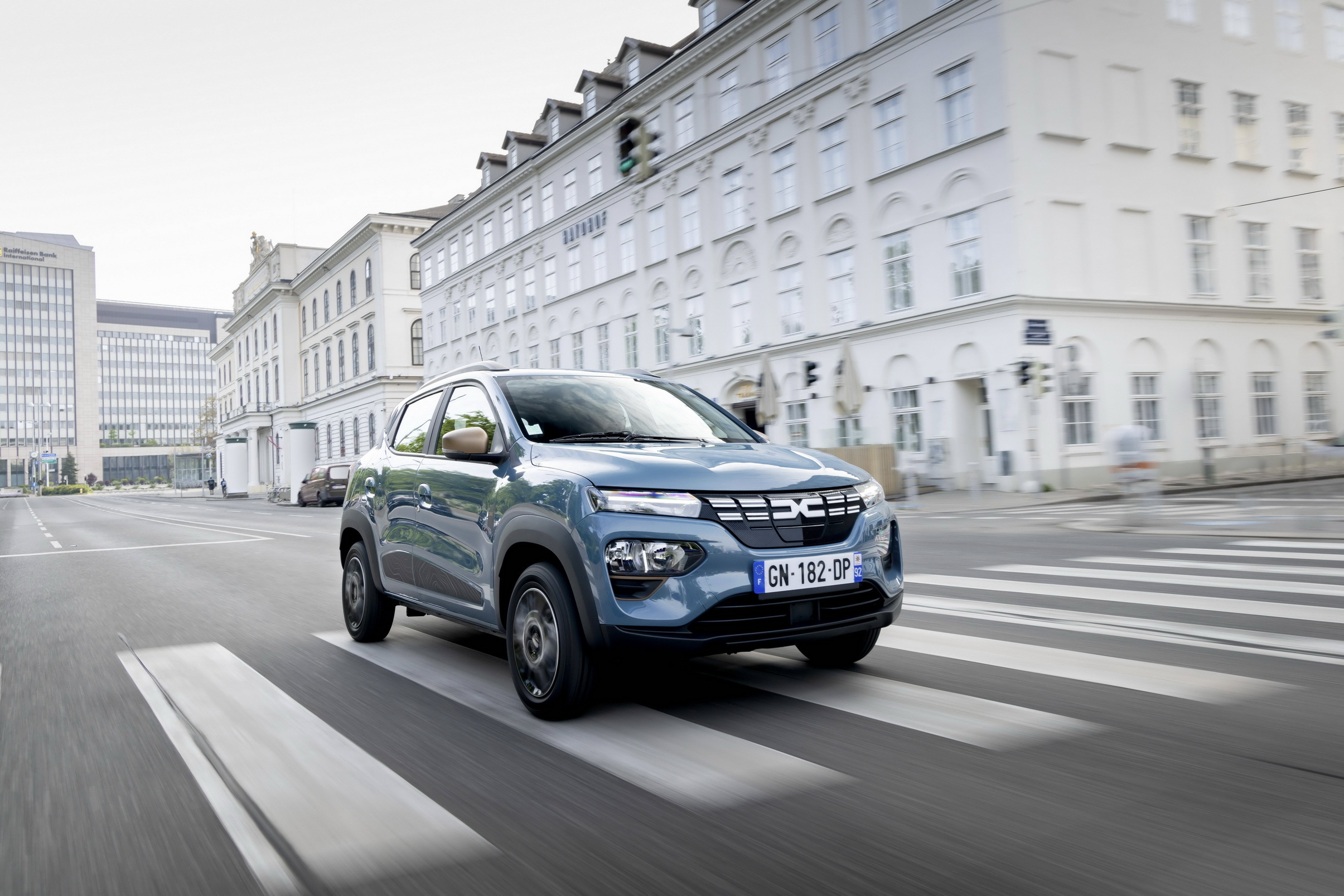One of the major hurdles now standing in the way of mass EV adoption is the cost. However, Dacia is doing its part to bring down the price of electric vehicles in Germany by offering buyers a massive €10,000 (about US$11,000 at current exchange rates) discount on the Spring EV until March 31.
That’s a stunning discount (which we were first alerted to by our reader, Robert), especially when you consider that the Spring starts at just €22,750 (about US$25,000). With this “elektrobonus,” as Dacia is calling it, the price of the hatchback effectively gets cut in half, allowing customers to own an EV for just €12,750 (about US$14,000).
This isn’t the first time Dacia buyers have benefited from a significant discount, but it is the largest. When the Spring was initially launched, it received an “environmental bonus” of €9,750 (approximately US$10,700).
Read: New Dacia Spring EV Will Be The UK’s Cheapest Electric Car
While the Dacia Spring may not be the most feature-packed EV on the market, it offers a reasonable balance between cost and performance. Despite its modest 26.8 kWh battery pack, it has a low curb weight, coming in at less than a metric ton (about 2,204 pounds). This allows it to achieve a range of 143 miles (230 km) per charge.
Further enhancing its appeal is the fact that it boasts extended maintenance intervals of 30,000 kilometers (nearly 19,000 miles) and comes with an eight-year battery guarantee or 120,000 kilometers (about 75,000 miles) with a guaranteed minimum charging capacity of 75 percent.
Built in China with the help of Dongfeng, Dacia has sold more than 30,000 examples of the Spring in Germany since 2021. As a result of its low price and its acceptable performance, the model has been well reviewed by critics. Safety organization are less glowing about it, though. EuroNCAP, which performs crash tests for the continent, gave the vehicle a 1-star rating in 2021.
Dacia’s latest electric bonus comes shortly after the German government decided to discontinue its EV subsidy program. Facing a budget crisis, the country decided last month that its €4,500 (about $4,900 USD) tax break for consumers, and its €2,250 (about $2,500 USD) incentive for automakers, would end abruptly.
























